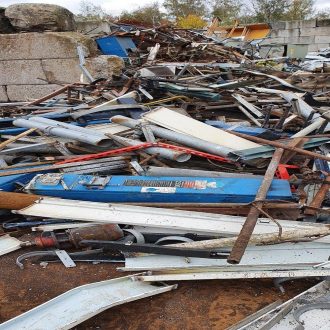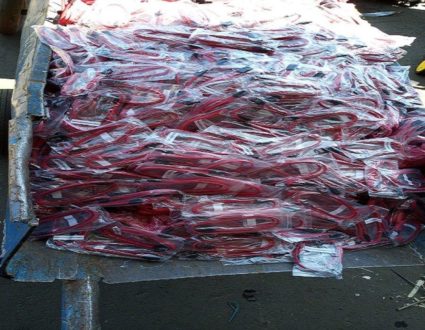Sustainable management of natural resources can reduce risk of armed conflict – IUCN report
The report, “Nature in a Globalised World: Conflict and Conservation”, examines how the environment impacts armed conflict, and how conflicts in turn affect the natural world and those working to conserve it. It is the first in IUCN’s Nature in a globalised world report series, and draws from novel analyses and synthesis of existing literature.
“Degradation of nature increases the likelihood of conflict, while wars devastate not only lives, but also the natural environment,” said IUCN Director General Dr Bruno Oberle. “While there are no simple solutions, this IUCN report recommends concrete steps for policy makers to conserve nature and promote peace simultaneously.”
The report finds that the degradation of nature is associated with increased risk of conflict. The authors analysed how armed conflict events over the last 30 years are related to the availability and productivity of arable land, the prevalence of drought, and the percentage of a country’s rural population as a measure of its dependence on nature. They found that countries are more conflict-prone when less agricultural land is available or if it is less productive; when they are more dependent on natural resources; or when drought events are frequent.
“These findings suggest that conservation, restoration and sustainable management of natural resources can help reduce the pressures that drive conflict by improving the condition and productivity of the landscape. As environmental degradation and climate change intensify, it is becoming increasingly important to factor in the links between conflict and nature when formulating security, development and environmental policy,” said Juha Siikamäki, IUCN’s Chief Economist.
In turn, armed conflict has numerous negative effects on nature, according to the report. These include the direct killing of wildlife for food or trade, degradation of ecosystems as both a tactic and a consequence of war, and the disruption of conservation, e.g. through attacks on protected area staff and other conservationists.
The report finds that armed conflicts are particularly prevalent in some of the more biodiverse regions of the world. Civil unrest and military exercises pose a risk to more than 200 threatened species, including iconic species such as the Critically Endangered Eastern gorilla. However, conflicts are less frequent within the boundaries of protected areas than would be statistically expected. Protected areas cover an estimated 15% of land, but overlap with only 3% of the more than 85,000 conflict events over the last 30 years analysed in the report.
“Conservation, sustainable and equitable management of nature play an important role in preventing conflict and in rebuilding peace,” said Kristen Walker, Chair of IUCN Commission on Environmental, Economic and Social Policy. “For example, they support livelihoods and wellbeing of indigenous and local communities in times of peace and help reduce the risk of conflicts breaking out. The relationship goes both ways and protection and conservation of nature crucially depends on support from indigenous and local communities and their environmental defenders.”
The report recommends a series of policy options that decision makers in conservation, peace-building and military organisations can implement to mitigate and prevent armed conflict. They include strengthening natural resource governance through measures like inclusive decision-making; improving accountability and transparency; and recognising the rights of indigenous peoples and of women. The authors recommend the establishment of explicit protections for protected area staff, environmental defenders, and other conservationists, and sanctions against those who commit environmental war crimes.
IUCN is a membership Union uniquely composed of both government and civil society organisations. It provides public, private and non-governmental organisations with the knowledge and tools that enable human progress, economic development and nature conservation to take place together.
Created in 1948, IUCN is now the world’s largest and most diverse environmental network, harnessing the knowledge, resources and reach of more than 1,400 Member organisations and some 17,000 experts. It is a leading provider of conservation data, assessments and analysis. Its broad membership enables IUCN to fill the role of incubator and trusted repository of best practices, tools and international standards.
IUCN provides a neutral space in which diverse stakeholders including governments, NGOs, scientists, businesses, local communities, indigenous peoples organisations and others can work together to forge and implement solutions to environmental challenges and achieve sustainable development.
Working with many partners and supporters, IUCN implements a large and diverse portfolio of conservation projects worldwide. Combining the latest science with the traditional knowledge of local communities, these projects work to reverse habitat loss, restore ecosystems and improve people’s well-being.
www.iucn.org
International Union for Convervation of Nature (IUCN)
Rue Mauverney 28
CH1196 Gland
Telefon: +41 (22) 999-0000
Telefax: +41 (22) 999-0020
http://www.iucn.org
Telefon: +41 (22) 999-0245
E-Mail: press@iucn.org
![]()




